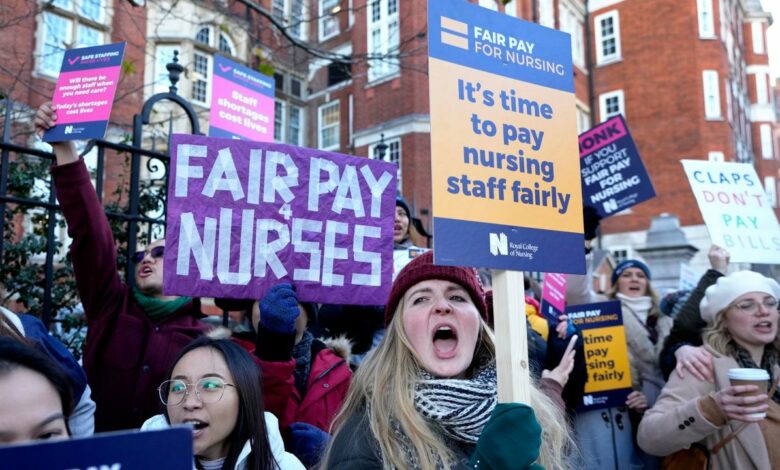
The average British worker’s pay in 2023 is expected to fall back to 2006 levels once inflation is taken into account, according to PwC. Real wages, which factor in inflation, are expected to fall by as much as 3% in 2022 and another 2% in 2023, PwC has predicted in a report on the UK economy shared with CNN.
The report confirms that wages have stagnated in Britain even as inflation hits double digits, sparking the worst cost-of-living crisis in decades. That’s led to widespread strikes across the UK economy, encompassing railways, schools, nurses, hospitals and the postal service.
On Friday, passport officers began eight days of strikes that are expected to hit some of the United Kingdom’s busiest airports over Christmas and New Year, including Heathrow and Gatwick in London. The government said in a statement that the military would be supporting Border Force but warned travelers to expect delays and disruptions on arrival in Britain.
“2022 has obviously been a highly challenging year for the UK economy, and it is not surprising that these chilly headwinds will continue throughout 2023,” Barret Kupelian, a senior economist at PwC said in a statement.
The report offered some hope. Despite the hit to wages, more than 300,000 UK workers could rejoin the labor market in 2023, reducing economic inactivity and alleviating staff shortages in highly skilled sectors, according to PwC. At the same time, increased immigration to the UK could directly contribute £19 billion ($23 billion) to the economy, boosting GDP growth by 1% “even as the whole economy contracts,” PwC said.
“Despite a contracting economy, the UK remains an attractive destination for workers,” PwC economist Jake Finney said in a statement. UK immigration levels reached a record 1.1 million in 2022, with resettlement programs aimed at Ukrainians, Afghans and Hong Kong residents adding around 140,000 to the total, according to PwC.
Even with record immigration, the United Kingdom has lagged behind developed nations in its post-Covid employment recovery. Vacancies hit a record 1.3 million earlier in the year, dropping to just under 1.2 million in November. Worker shortages have been particularly acute in the hospitality, retail and agriculture industries.
Research by the House of Lords Economic Affairs Committee published this week concluded that early retirement has been the biggest driver of the squeeze on the UK workforce. Increasing long-term sickness, lower EU migration following Brexit and an aging UK population have also played a role.
“The rise in inactivity poses serious challenges to the UK economy. Shortage of labor exacerbates the current inflationary challenge; damages growth in the near term; and reduces the revenues available to finance public services, while demand for those services continues to grow,” the committee said.
PwC’s Kupelian added that UK inflation likely peaked in October and “will gradually begin to return to target over the next two years.”




